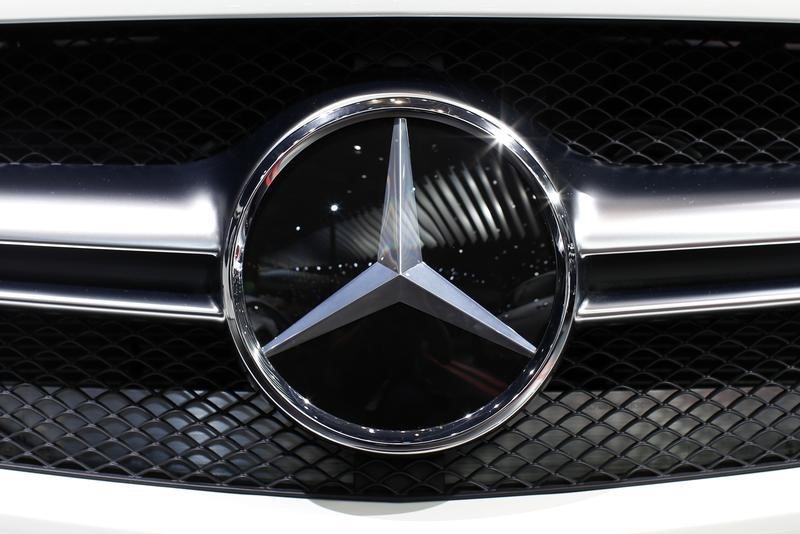Can anything shut down the Gold rally?
Investing.com -- Mercedes-Benz Group (ETR:MBGn) on Wednesday posted that its Q2 profit slumped 69% to €957 million as sales declined and earnings in China weakened, underscoring mounting pressure on the automaker’s global business.
Revenue fell 10% to €33.2 billion from €36.7 billion a year earlier, and EBIT dropped 68% to €1.27 billion from €4.04 billion.
Earnings per share declined to €0.95 from €2.95. The company attributed the downturn to lower vehicle deliveries, softer pricing, negative currency effects and reduced contributions from its Chinese joint ventures.
Mercedes-Benz Cars recorded an 11% revenue decline to €24.2 billion and a 56% fall in adjusted EBIT to €1.23 billion.
Unit sales dropped 9% to 453,674 vehicles, including a 19% decrease in China to 140,397 units. All-electric vehicle sales declined 24%, while plug-in hybrid deliveries rose 34%.
Electrified vehicles accounted for 20.7% of total car sales, up from 18.1% in the prior-year quarter. Adjusted return on sales fell to 5.1% from 10.2%.
Mercedes-Benz Vans posted an 11% revenue decline to €4.24 billion. Unit sales fell 10% to 93,393, driven by an 11% drop in commercial vans and a 4% decline in private vans.
Adjusted EBIT declined 47% to €441 million, with return on sales falling to 10.4% from 17.5%. Electric van sales rose, increasing their share of total deliveries to 7.4%, up from 5.0% a year ago.
The Mobility segment saw a 2% revenue decrease to €6.25 billion. Adjusted EBIT rose 7% to €290 million due to lower functional costs.
New business declined 2% to €13.8 billion, while contract volume dropped to €128.8 billion from €138.1 billion, largely because of currency effects.
Group vehicle sales declined 6% in the first half of 2025 to 900,000 units. China led regional declines with a 14% drop. U.S. deliveries fell 6% to 142,006 units, while European sales declined 3%.
Free cash flow of the industrial business rose 14% to €1.87 billion. Adjusted free cash flow increased 16% to €1.98 billion, driven by improved working capital and personnel cost measures. Net liquidity stood at €30.8 billion, down from €31.4 billion at the end of 2024.
Research and development spending rose 1% to €2.36 billion, with €904 million capitalized. Investments in property, plant and equipment remained flat at €918 million.
The company launched the all-electric CLA in Europe, the first model using the in-house MB.OS software.
It completed the sale of its Argentina operations in June and initiated a workforce program in Germany, extending job security through 2034.
Mercedes-Benz also plans to consolidate functions in Atlanta and expand R&D operations in the U.S.
“In addition to unexpected macroeconomic and geopolitical developments, the trade policy environment in particular, and especially the current and possible future impacts of US tariff policy and the effects of potential countermeasures by important trading partners, are leading to uncertainties for the world economy and the business development of the Mercedes-Benz Group,” the Stuttgart-based company said in a statement.
